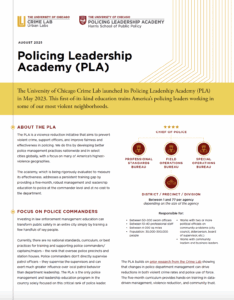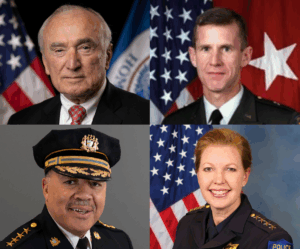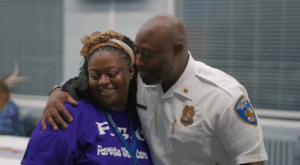Feb 2017
The First 10: A Decade of Impact at the University of Chicago Crime Lab and Education Lab
Topics
This 10-year report reflects on the United States’ societal challenges and the steps taken by the University of Chicago Crime Lab and Education Lab to address these issues.
Topics

Policing Leadership Academy (PLA) Overview
Read an overview of the Policing Leadership Academy (PLA), a first of-its-kind program launched in May 2023 to train America’s policing leaders working in some of our most violent neighborhoods.

Policing Leadership Academy Advisory and Research Committees
View the members of the PLA’s advisory and research committees.

Video: Reducing Violence and Improving Policing
This video offers a glimpse into the Policing Leadership Academy, a violence reduction initiative designed to prevent violent crime, support officers, and improve fairness and effectiveness in policing throughout some of the country’s most violent neighborhoods.

Video: Creating Safer Communities by Improving Policing
Griffin Catalyst highlights the Policing Leadership Academy, a new national leadership program that brings together rising police leaders from around the country for five months of advanced, intensive training in management best practices, leveraging data and technology and building community trust—all with the ultimate goal of creating safer, more vibrant communities.
Latest Updates
Curbing gun violence in Chicago doesn’t require that we first end poverty
Crime Lab leaders Katie Hill and Jens Ludwig penned an op-ed in the Chicago Tribune highlighting the root causes of gun violence and the growing body of research showing that increased neighborhood vibrancy generates surprisingly large changes in the prevalence of gun violence, by as much as 30%.

A fighting chance
In The University of Chicago Magazine’s Fall ’25 issue, Susie Allen profiles Crime Lab Pritzker Director Jens Ludwig to discuss his book, “Unforgiving Places,” which challenges conventional wisdom on gun violence and suggests new approaches to solving the problem.

Researchers: Violence intervention and policing should complement, not compete against, each other
The Crime Lab’s Executive Director Katie Hill and Pritzker Director Jens Ludwig discuss evidence-based solutions to crime, including violence intervention and data-driven policing, in an op-ed for the Chicago Tribune.

